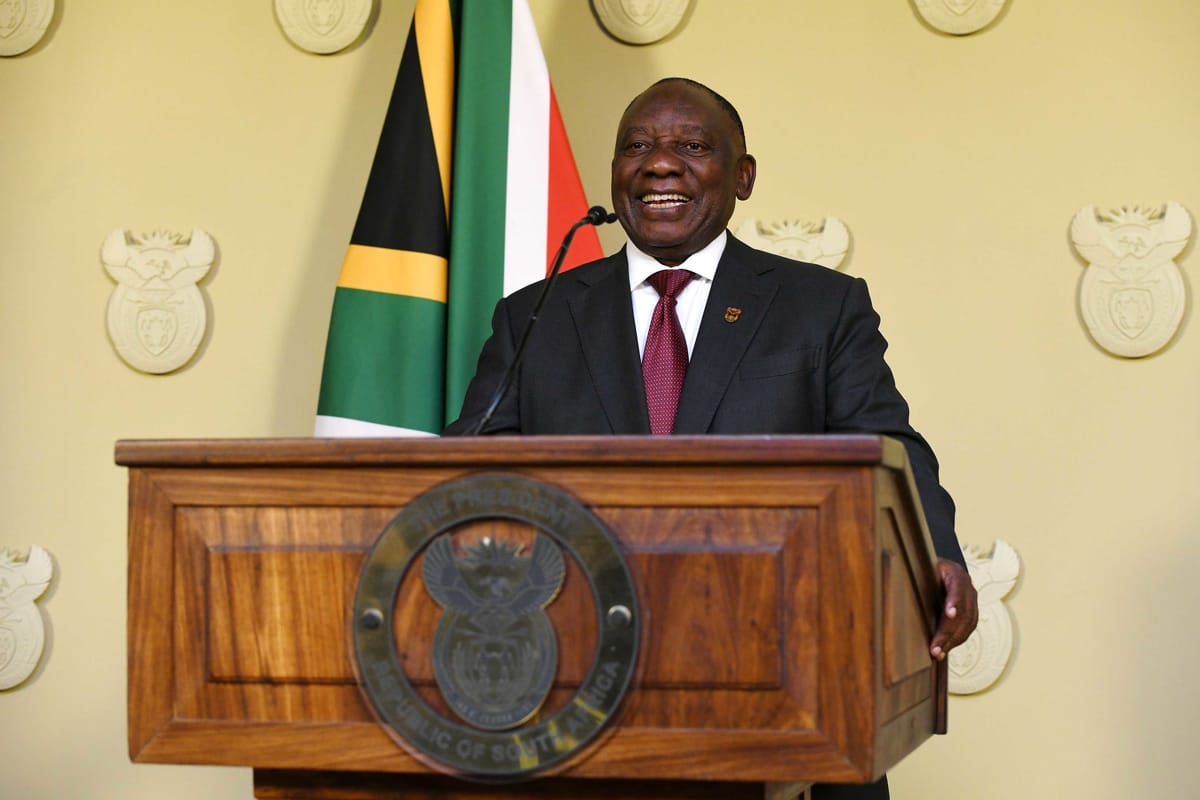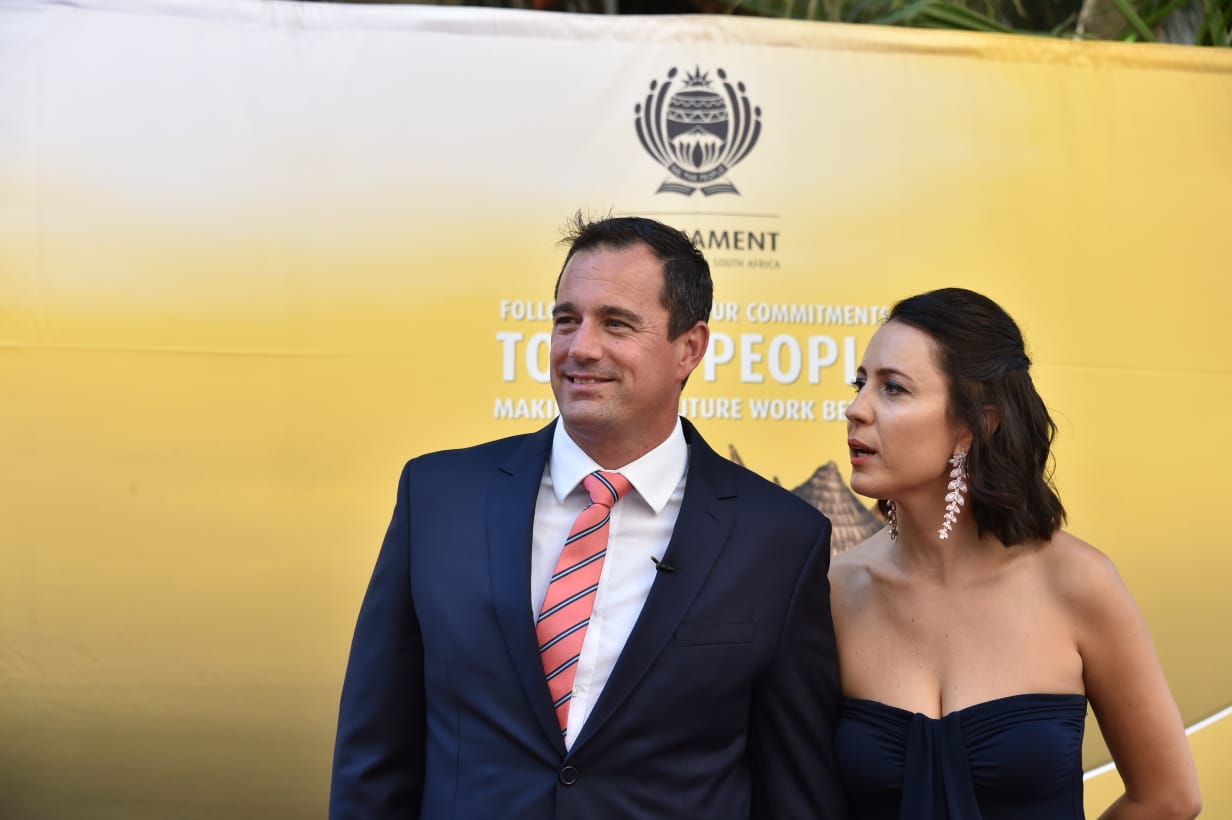President Cyril Ramaphosa and the African National Congress lost ground badly in South Africa’s June elections, declining to 40 per cent of the vote. The result has forced the ANC into a coalition for the first time since the end of apartheid.
What hasn’t changed is Ramaphosa’s legendary ability to negotiate a brilliant deal in a tight situation.
Ramaphosa made his name leading the Mineworkers Union during the nadir of apartheid. Faced with declining mine profitability and workers’ demands for higher wages he negotiated a much-needed pension scheme in lieu of a wage rise. He made the deal stick with his own members and gained enormous credibility with the business community.
Not having status as a former political prisoner and as a Venda from a small minority ethnicity, Ramaphosa felt pushed aside in post-apartheid politics despite Nelson Mandela’s high regard for him. Ramaphosa turned his negotiating skills to private enterprise making a fortune in mining and McDonald’s franchises.
Returning to ANC politics, he helped engineer the ousting of then president Jacob Zuma in 2018. Zuma had an excellent pedigree as an ANC provincial leader facing down conservative Zulu elements in KwaZulu-Natal but was out of his depth running a modern economy. Economic decline Ramaphosa inherited largely explains the drop in the ANC national vote.

The South African electorate moved to the right in 2024. The centre-right Democratic Alliance (DA) gained almost 22 per cent of the vote and the atavistic Economic Freedom Fighters (EFF) of Julius Malema lost ground to under 10 per cent. Minor parties proliferated.
Ramaphosa had coalition choices. The EFF whose policies closely resemble Mugabe’s in Zimbabwe was too anarchic and Zuma’s Zulu-based uMkhonto weSizwe (MK) party with 58 seats in a 400-seat parliament wanted Ramaphosa’s head. Parliamentary maths appeared to put the DA and its leader John Steenhuisen in the box seat.
South African membership of BRICS was fostered by Zuma, and Ramaphosa’s worldview leans more to the West.
Instead, Ramaphosa has played a weak hand with skill. Steenhuisen imagined a coalition cabinet reflecting the share of the vote; two thirds of ministers from the ANC and a third from DA. Ramaphosa foresaw trouble in ANC ranks. Lingering entitlement to office, reduction of place and patronage and a rank-and-file view that DA was too white and too rich meant holding the line. Steenhuisen wanted economic portfolios which seemed threatening to ANC’s socialist outlook.
Ramaphosa stalled for over a week bringing micro-parties with only a few seats into the “Government of National Unity”. Even ANC’s moribund rival from the 1960s, the Pan Africanist Congress (PAC) with one parliamentary seat and 0.04 per cent of the vote was brought in gaining the Land Reform ministry. Steenhuisen tried to persist but announcement by EFF and Zuma’s Zulus that they were now open to joining the government panicked the DA into folding.
Ramaphosa got the cabinet he wanted.
DA has six posts in a cabinet of 32 and no security or economic ministries. In an exercise of setting opponents against each other, Steenhuisen becomes Minister of Agriculture. The appointment will please the white farming community and foreign investors, but also pits him against the EFF militants trying to seize white farms. More problematic is inclusion of the Zulu-based Inkatha Freedom Party (IFP) with eight parliamentary seats. Once the sworn enemy of ANC, its inclusion at both national and provincial level in the coalition means the sizable Zulu ethnicity is now split three ways between IFP, the Zuma party and a remnant KwaZulu provincial ANC.
ANC now has minority status in three of the country’s nine provinces with the likelihood the country’s politics will fragment further.

Abroad, the cabinet’s view of the future of the BRICS is uncertain. South African membership was fostered by Zuma, and Ramaphosa’s worldview leans more to the West. New Foreign Minister Ronald Lamola, a fellow Venda, is a foreign policy neophyte, close to Ramaphosa and unlikely to stray far from the views of his boss.
China and Russia have interests in South Africa’s energy modernisation and will resist any coolness in the relationship. India, long invested in diaspora diplomacy through South Africa’s large Indian minority, will be miffed by the cabinet’s absence of Indian representation but will also persist.
Unchanged will be South Africa’s limited reach into the Indian Ocean. Maritime defence modernisation is highly unlikely. South Africa will conform with the African Union’s disinterested settings on the Indian Ocean and its strategic evolution.
That said, Ramaphosa is likely to be open to any Australian initiative to broaden the relationship.
Ramaphosa has achieved balance and dominance for now. Balance risks stalemate particularly on land reform and agricultural productivity. Most significantly, he has kept one of the country’s biggest problems – electricity production – firmly in ANC hands within the cabinet. Failure to reverse South Africa’s collapsing power generation capability is probably the greatest threat to his credibility and broader stability.

